10 Untold Facts You Need to Know About Sujimoto Luxury Constructions Limited & Government of Enugu State – ICG
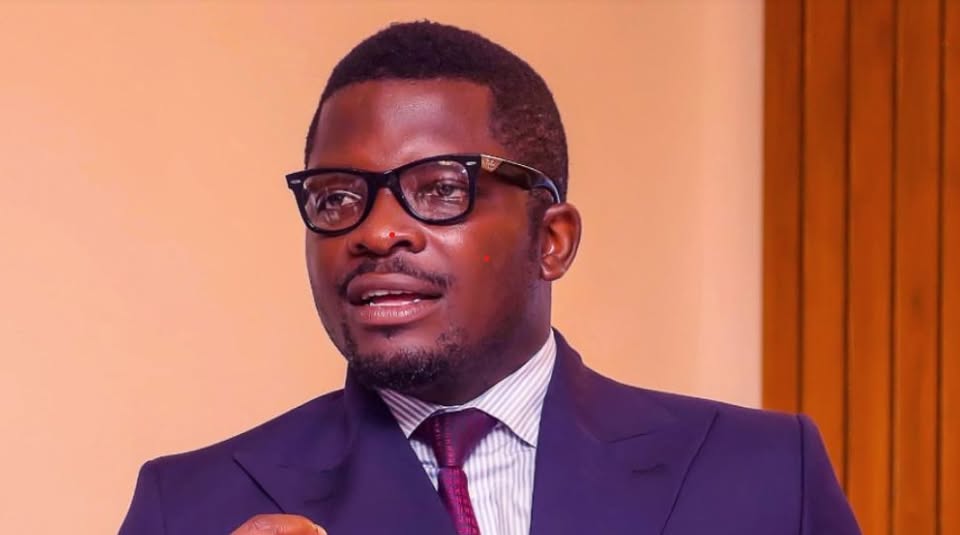
1). No Case of Fraud: Sujimoto Luxury Construction Limited was lawfully awarded the contract for construction of Smart Schools in Enugu State by the Enugu State Government in July 2024. The Company commenced construction of the projects while navigating through environmental and macroeconomic challenges confronting the projects, until the State Government unilaterally revoked the construction contract in January 2025.
2). Clear Evidence of Construction Works Done: Sujimoto approached the construction of the School projects with utmost professionalism, commitment and accountability, until the State Government revoked the contract. As at 29th June 2025, Sujimoto had a dedicated workforce actively deployed across the 22 school sites, including 19 engineers, 24 foremen, 6 quantity surveyors, 6 storekeepers, 12 drivers, and 30 security officers.
3.) Sujimoto Never Denied Accountability nor Indebtedness to the Government: All money disbursed and expensed for the project are documented and accounted for.
Sujimoto received the sum of ₦5.2 Billion Naira in five tranches from the State Government, of which substantial sums were invested towards the project supported by verifiable records before termination of the contract by the State Government.
4). Dispute Already in Court for Determination of the Extent of Sujimoto Liability to the State Government: The Dispute between the Enugu State Government and Sujimoto over the termination of the contract for construction of Smart Schools has been subject of an ongoing litigation before the Enugu State High Court since June 2025.
The case was last adjourned by the Court to November 2025 for continuation of hearing of the case.
5). A Contractual Civil Dispute, that Needs No Security Intervention nor Criminal Accusations: The summary of the agitation of the Enugu State Government is that it is dissatisfied with the Quality of construction of the project by Sujimoto – hence the termination of the construction contract.
The relationship of the Enugu State Government and Sujimoto is bound by a Contract, and if any party feels aggrieved by the manner of performance of the contract, the appropriate forum to seek redress is the Court of Law, and not intimidation through security interventions nor criminal accusations.
6) A Continuous Call for Independent Valuation of the Construction Work executed by Sujimoto: Sujimoto has consistently called for the appointment of an independent accredited valuer to assess the construction work delivered by Sujimoto on the project and the funds expended accordingly.
It is reckless and Infact malicious to raise allegations of financial unaccountability without an independent valuation of the work delivered by Sujimoto on the project.
7) Invitation by the EFCC: Sujimoto Luxury Constructions Limited, its Managing Director and legal team have remained in active communication with the EFCC, and exchanged correspondences before the recent media trial.
The Managing Director of the company, Dr. Suji Ogundele has confirmed his eagerness to personally honor the EFCC invitation and provide the Commission with every possible clarification needed on the Dispute.
8) Sujimoto Relentless Commitment to Serve the Good People of Enugu State: Following the termination of the Smart School Construction Contract by the Enugu State Government via a letter communicated to Sujimoto on 27 January 2025, Sujimoto promptly responded via a letter on 30 January 2025, urging for extension of time to rectify any concerns raised by the State Government on the project, but all to no avail.
Since the parties commenced litigation of the dispute in court in June 2025, Sujimoto and its legal team had actively engaged the State Government for amicable settlement of the dispute, and the company had undertaken to repay the State Government any outstanding balance due on the project after an independent valuation of the work delivered by Sujimoto.
9) Innocent until proven Guilty: Thus far, the Smart School Construction Contract was legally awarded to Sujimoto. Sujimoto acknowledges receipt of the sum of 5.2 Billion Naira paid for the project by the Enugu State Government. Sujimoto commenced the construction of the project until the contract was terminated by the State Government. Sujimoto is ready and available to account for every money received and spent by the Company towards the project, and refund any outstanding balance due to the State Government.
10) The Facts Speaks for itself: For over 12 years, Sujimoto has delivered some of Nigeria’s most iconic luxury construction projects, built on a reputation of integrity and excellence. This project is no exception. Sujimoto remains committed to upholding the truth, transparency and accountability.
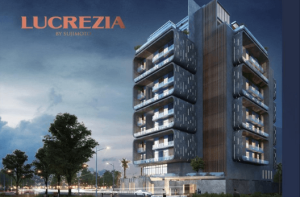
Sujimoto Group is luxury property development company owned by a Nigerian real estate entrepreneur Sijibomi Ogundele. The brand is known for high-end, ambitious projects. Sijibomi Ogundele, Founder and CEO’s early life started in Agege, Lagos where he was born and sprung-forth from. He often speaks of his humble beginnings, which he credits for his ambitious drive. He earned a law degree from Anglia Ruskin University in the UK. He started his career abroad as a real estate agent in France, and he returned to Nigeria in 2014 with a vision to transform the luxury real estate market. Ogundele emphasizes diligence, innovation and excellence in the Sujimoto brand, which he calls the “Rolls Royce of luxury real estate”.
The Sujimoto Group was founded in 2013 as a Nigerian conglomerate with interests in luxury real estate, construction and hospitality. Its projects are concentrated in upscale areas of Lagos, such as Ikoyi and Banana Island, with ambitions to expand internationally. Beyond construction, the company also offers property management, real estate advisory and short-let services through its Sujimoto Residences brand.
Notable projects:
- Lucrezia by Sujimoto: A high-rise in Banana Island.
- Leonardo by Sujimoto: Another luxury building project in Ikoyi.
- Giuliano by Sujimoto: A project in Banana Island featuring ultra-luxurious terrace duplexes and penthouses.
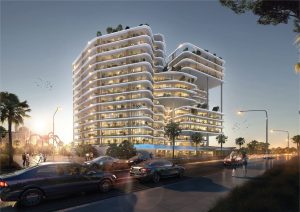

On the philanthropy and public image: despite the controversies, Ogundele has a well-publicized philanthropic side:
- In 2015, he gained media attention by giving a luxury, furnished apartment and five years of paid rent to Olajumoke Orisaguna, a bread seller who was discovered as a model.
- He is known for other corporate social responsibility (CSR) initiatives, including a giveaway of 10,000 hampers to the less privileged in 2015.
- The company has also performed CSR activities at Ogundele’s former primary school in Agege.
THE SUJIMOTO – ENUGU STATE SCHOOLS ROW:
HOW A CONTRACT DISPUTE BECAME A STRESS TEST FOR NIGERIA’S BUSINESS CLIMATE AND PLAYERS
This report is based on official statements, government records and contemporaneous media coverage. The allegations referenced remain unproven, and Mr. Ogundele, as well as all other parties involved, are entitled to the presumption of innocence and the right to a fair hearing under Nigerian law.
When the Economic and Financial Crimes Commission (EFCC) declared real-estate developer Olasijibomi Sujimoto Ogundele wanted for alleged diversion of funds, a contract disagreement in Enugu State became a national stress test. What began as an ambitious plan to deliver 22 “Smart Green Schools” now sits at the intersection of Nigeria’s procurement culture, its struggling construction industry and the credibility of government social spending.
At the centre is a ₦11.46 billion contract signed in July 2024. Enugu State says it paid half the sum upfront to speed delivery, but accuses Ogundele’s Sujimoto Construction of leaving most sites at foundation level. Ogundele denies fraud, citing inflation, foreign exchange shocks, logistics disruptions and attacks on his teams. While the EFCC sweeps-in to investigate, no court has ruled. Thus, the implications and impressions created in respect to the segments below, may speak of extensive socioeconomic and sociocultural discolouration.

Business and banking risks: to prospective investors, the case highlights deep vulnerabilities in Nigerian contracting. Why did the state advance 50% of funds when federal guidelines cap mobilization at 15%? Why were payments routed outside the bank that issued the bond? These questions sharpen debate about whether Nigeria government’s safeguards on public funds, are tightly working upheld in practice. As the banks, insurers and investors are watching closely; the expected answers may influence how future public-private-partnerships are financed.
A real estate brand under scrutiny: Sujimoto is known for luxury high-rises in Lagos’ elite enclaves – Ikoyi, Banana Island and Lekki: and based on its unimaginable creativity in construction, a multi-site public schools project is a doable project. However, the Enugu dispute raises questions about whether high-end builders can pivot into mass infrastructure with tight timelines, inflation, fluctuating exchange rate, insecurity and uniform construction standards. Also, for public service wider construction divisions, the Enugu dispute episode underscores the need for milestone-based payments, ring-fenced accounts, consideration of prevailing economic dynamics and transparent technical audits.
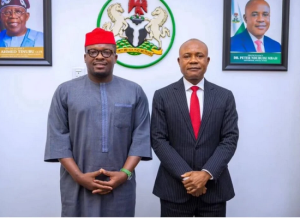
The human social implication: Beyond the boardrooms, agency investigation and legal filings, are classrooms that should be in use for the sake of the future of Enugu State. Parents and teachers were promised model facilities to improve learning outcomes. With projects stalled and sites reassigned, the real losers, risk being pupils who may face another academic year in overcrowded or inadequate schools. For a state seeking to modernize education, delays could undermine both policy goals and public trust.
Politics and perception: The EFCC’s “wanted notice,” injected theatre into a dispute already charged with politics. To the Enugu government, recovery of funds and visible site progress are now as important as classrooms themselves. While for the opposition, the saga illustrates lapses in oversight. For Abuja, the case allows anti-corruption agencies to signal that scrutiny extends to private contractors, not just politicians. But in the end, it is due process that will decide outcomes, not press statements.
The stakes for Nigeria’s business climate: Investors, diplomats and diaspora partners will read the case less as a fight over school buildings construction than as a litmus test: are contracts enforced fairly? Are bonds and guarantees meaningful? Can government step in swiftly when delivery falters? Can government swiftly adjust in favor of contractors in the face of inflation and unstable exchange rate? The answers will shape country-risk assessments, boardroom decisions and Nigeria’s reputation as an investment destination.
What happens next: Ogundele has pledged to present himself to the EFCC and insists he is “not a thief.” Enugu has reassigned the projects to meet its September 2025 target. The next months will reveal whether this saga becomes a story of accountability and recovery, or another costly detour where children paid the highest price.


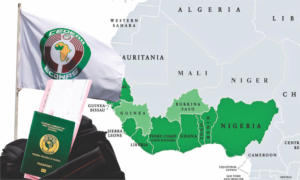

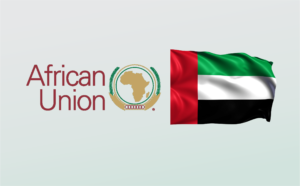


Do you mind if I quote a couple of your articles as long as I provide credit and sources back to
your blog? My blog site is in the very same niche as yours and my visitors
would genuinely benefit from some of the information you provide here.
Please let me know if this alright with you. Thank you!